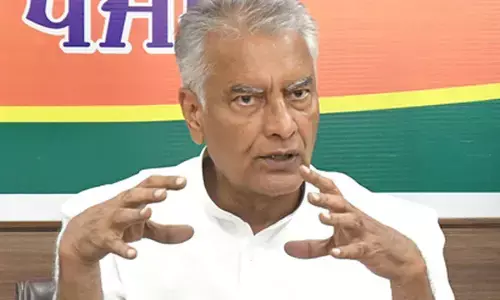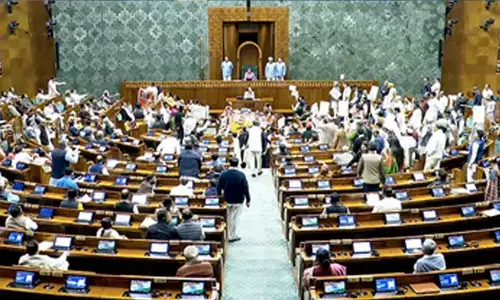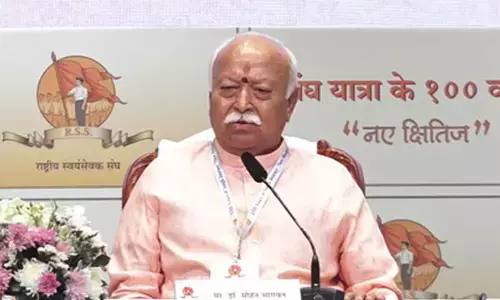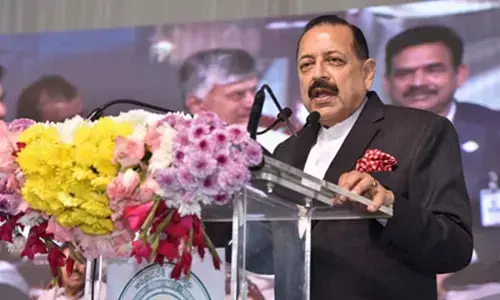British education meant to create 'servant class' in India: PM Modi
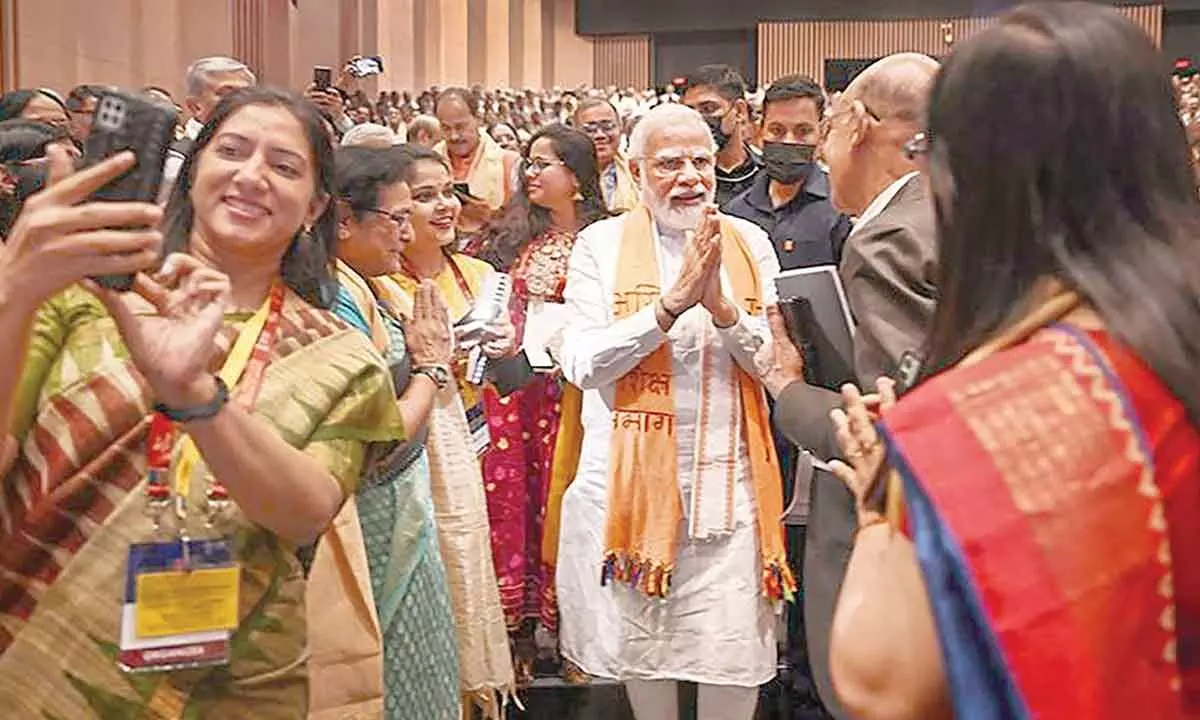
Prime Minister Narendra Modi at the inauguration of 'Akhil Bhartiya Shiksha Samagam' on the implementation of National Education Policy-2022, in Varanasi on Thursday
Though there are some changes made, a lot still remain unchanged
Varanasi: Prime Minister Narendra Modi on Thursday said the British gave the country an education system to create a servant class for meeting their own needs and a lot of it still remained unchanged.
Addressing a summit here on the implementation of the National Education Policy (NEP), Modi said the system should not just produce degree-holders but provide human resources needed to take the country forward. He said the purpose of the education system created in the country was only to provide jobs. "The British provided this education system to prepare a servant class for themselves to meet their needs. After Independence there were some changes in it but a lot remained," he said at the inauguration of a three-day meeting organised by the Union Education Ministry with the University Grants Commission and the Banaras Hindu University.
Modi said children now cite Google to counter others. "We should create a system in our campuses that when these students arrive there in the next few years they get what they want," he said. "We have to delve into the details of the challenges and problems and find solutions. The NEP is opening doors for education in Indian languages. I have confidence that India could emerge as a world education destination," he said.
The Akhil Bharatiya Shiksha Samagam will adopt a "Varanasi Declaration on Higher Education", highlighting India's commitment to achieving higher education goals. The PM said "innovative thoughts and new ideas" should be discussed at the summit. He urged partnerships between the government and the universities, asking them to identify areas of their expertise and offer advice.
"You should identify problems, resources and solutions to them within a 50-100 km radius of the university," he said, also suggesting that students could study the impact of government schemes in these areas. He said the education system should keep pace with a changing world and prepare the youth for it.








